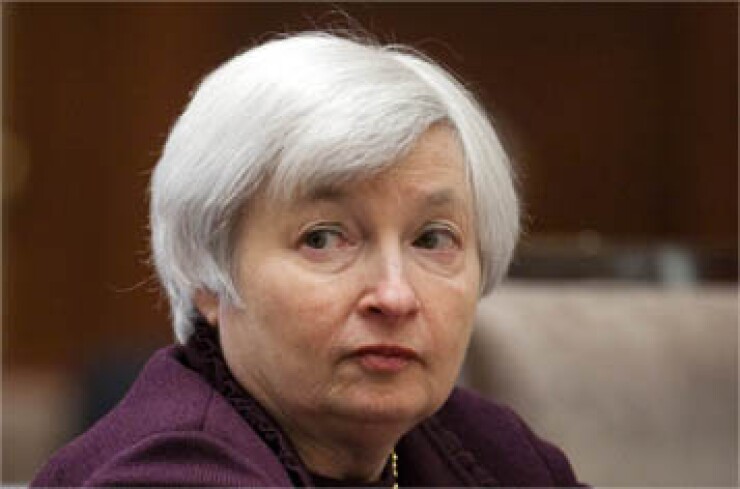
While the economy has made "considerable progress" and in the past year the jobless rate has dropped "at a surprisingly rapid pace," the labor market hasn't fully recovered, Federal Reserve Board Chair Janet Yellen said Friday.
"More jobs have now been created in the recovery than were lost in the downturn, with payroll employment in May of this year finally exceeding the previous peak in January 2008," she said in Jackson Hole, according to prepared text released by the Fed. "Job gains in 2014 have averaged 230,000 a month, up from the 190,000 a month pace during the preceding two years."
Despite the "encouraging" developments, Yellen said, "it speaks to the depth of the damage that, five years after the end of the recession, the labor market has yet to fully recover."
With a "far from perfect" understanding of how labor markets impact inflation, "monetary policy ultimately must be conducted in a pragmatic manner that relies not on any particular indicator or model, but instead reflects an ongoing assessment of a wide range of information in the context of our ever-evolving understanding of the economy," she said.
It's difficult to determine how much slack remains in the labor markets. "Differing interpretations of these developments affect judgments concerning the appropriate path of monetary policy," Yellen noted.
Reiterating there is no preset path for monetary policy, Yellen noted the Federal Open Market Committee still considers underutilization of labor resources "significant," and as such, current policy remains appropriate and will likely remain so "for a considerable time after our current asset purchase program ends."
However, Yellen said, "if progress in the labor market continues to be more rapid than anticipated by the Committee or if inflation moves up more rapidly than anticipated, resulting in faster convergence toward our dual objectives, then increases in the federal funds rate target could come sooner than the Committee currently expects and could be more rapid thereafter."
Conversely, she said, and "if economic performance turns out to be disappointing and progress toward our goals proceeds more slowly than we expect, then the future path of interest rates likely would be more accommodative than we currently anticipate."





